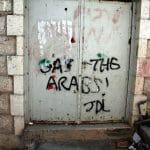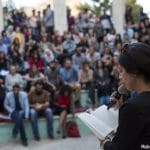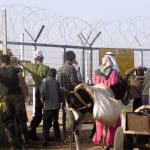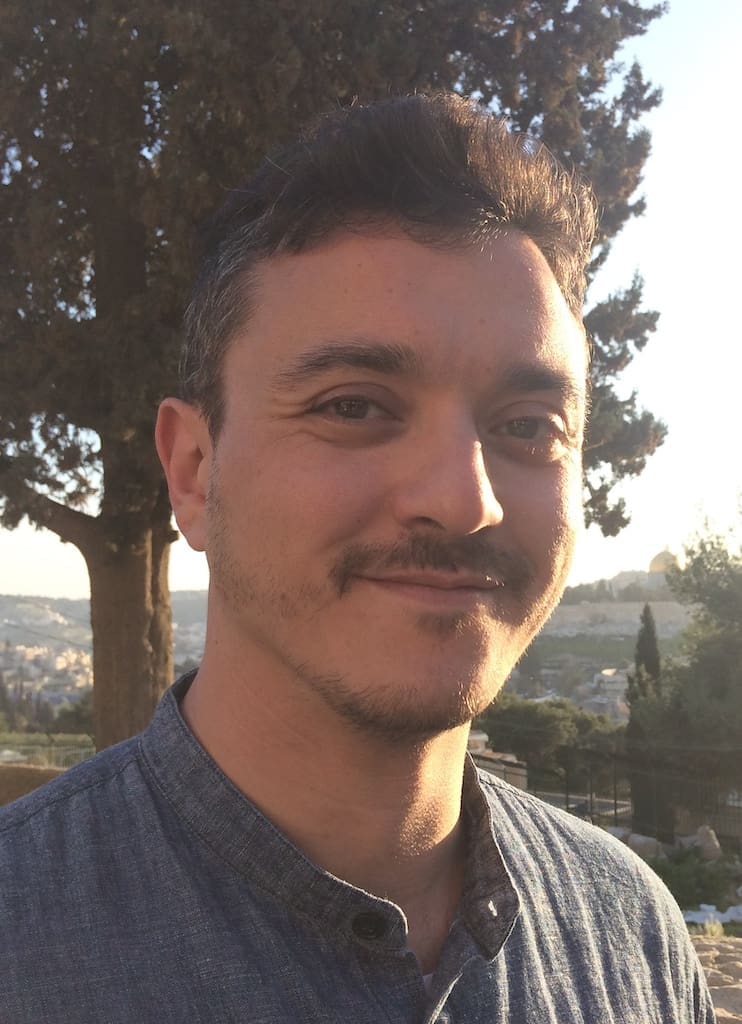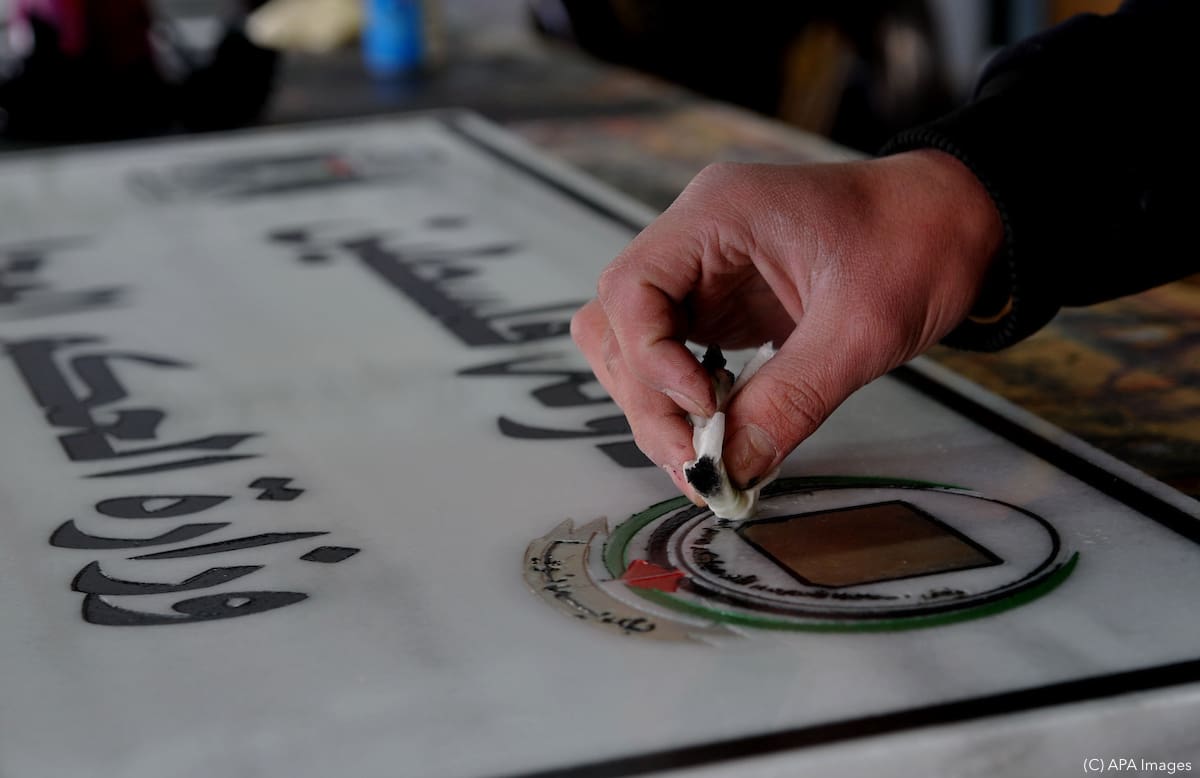
Overview
Jamil Hilal’s provocative commentary Reclaiming the Palestinian Narrative evoked diverse responses from the Al-Shabaka network that are captured in this roundtable. Hilal identified five major misrepresentations in the discourse on Palestine: “shrinking” Palestine, truncating its history, “shrinking” the Palestinian people, the mirage of the two-state solution, and the myth of development under occupation. He proposed several ways to reclaim the narrative.
In the first of the Roundtable responses, Ali Abunimah urges that the Oslo fictions, including the one that the Palestinian Authority (PA) is a representative body, be stripped away as Palestinians work on changing the balance of power that sustains the dominant narrative. Guest author Mandy Turner addresses the double struggle, within and outside the Palestinian community, that will be needed to overturn the Oslo paradigm in favor of an alternative narrative. Saleh Hijazi ties the problems in the narrative to the Palestinians’ inability to be clear about the end goal and to the very pertinent question of whether there is a place for the Israeli in the Palestinian narrative.
Halla Shoaibi criticizes the role of the PA and the Palestine Liberation Organization (PLO) in designing a flawed curriculum that distorts the discourse and calls for a move to reclaim the education system to build a new discourse on solid ground. Ismail Khalidi points out that reclaiming the discourse is one part, albeit important, of a multi-faceted struggle to expose the Israeli matrix of control in all its aspects, ending the Oslo illusions once and for all. Guest author Cecilie Surasky speaks of the progress made in decolonizing the mind and challenging the hegemonic narrative on Israel, particularly in the United States, and explains why, and how, fulfilling Hilal’s vision is doable.
Ali Abunimah
Jamil Hilal accurately diagnoses many of the myths and falsehoods that plague discussion about Palestine. But these myths and falsehoods – whether it is starting history in 1967, erasing the Nakba, or the hoax of Salam Fayyad’s Israeli and American-sponsored “state building” initiative -– are not accidental. They are the fictions necessary to underpin the “two-state” project that were accepted by the PLO and whose only purpose now is to prolong Israel’s existence as a Jewish state by legitimizing its fundamentally racist practices, especially the exclusion of Palestinian refugees for the sole reason that they are not Jews.
It is not narrative that stands in the way of Palestinians now but real life obstacles. There’s little point complaining that non-Palestinians use “Palestine” to refer only to the West Bank and Gaza Strip when Mahmoud Abbas tells Israeli television precisely that only the West Bank and Gaza Strip are “Palestine” and the rest is Israel. Palestinians everywhere steadfastly defend and emphasize the Nakba and the right of return already despite the fact that the PA surrendered refugee rights in negotiations, as revealed by the Palestine Papers. One fiction we actively need to discourage is that the Palestinian Authority has any representative legitimacy whatsoever. Palestinians vigilant about defending their rights should be the first to object when foreign leaders receive Abbas as a “head of state.” This only feeds the damaging fictions of the Oslo era.
Yet the formidable obstacle that the Palestinian Authority poses to the realization of Palestinian rights cannot stop us. The 2005 Palestinian civil society Call for Boycott, Divestment and Sanctions (BDS) -– which Hilal rightly emphasizes –- restores and recasts the Palestinian struggle in terms of rights for all three groups of Palestinians: those in the territories conquered in 1948, those in the West Bank and Gaza Strip, and the Diaspora. By organizing around and promoting the BDS call, we are already changing the narrative. The fact that Israel sees the growing success of BDS as “delegitimizing” its very existence demonstrates that when the shape of the struggle changes, the narrative follows. The narrative is dominated by those with the most power, so we must focus on changing the balance of power by all legitimate means of struggle and resistance in pursuit of Palestinian rights, and the narrative will follow.
Mandy Turner
Jamil Hilal shows how Palestinians’ permission to narrate has unfortunately not gotten any better since Edward Said’s 1984 London Review of Books essay. Creating a counter-narrative to the dominant “Oslo peace paradigm” –- which has entrenched the five misrepresentations as identified by Hilal – will require a double struggle: both inside the whole Palestinian community, and outside the Palestinian community because there are powerful interests in both arenas that seek to ensure the continuation of these misrepresentations.
But we know that. What I am interested in is this: why is it that no one really believes (including its supporters) that the Oslo paradigm, i.e. the so-called two-state solution, is going to be implemented or will be sustainable, but they continue to buy into its ideology? Is it purely for self-interested reasons, or is it because the ideological tipping point has not quite been reached yet?
Slavoj Žižek defines ideology as “a lie which pretends to be taken seriously.” Oslo facilitated the process of bringing to life the lies and misrepresentations that Hilal argues have hampered the Palestinian struggle for rights and for self-determination. The genius of Oslo, however, was that it was ambiguous in its language – and this has also been part of the problem.
The alternative discourse that Hilal suggests will be rejected by some as “unrealistic,” particularly by Western governments, whose support for the Oslo paradigm is unwavering and will continue. And yet the growing contradictions between the Oslo ideology and the reality on the ground mean that support will increase for alternative narratives amongst Palestinians and their international supporters.
I am not naive enough to suggest that this will be willingly accepted by those who seek to ensure a continuation of the status quo – because it will not. This will not be an easy struggle.
But the mask of Oslo is slipping and the reality is being increasingly exposed for what it is: a process of colonization and dispossession, not a process that will lead to Palestinian self-determination. An alternative narrative is required; Hilal’s five-point outline for one is an excellent way to start the battle of ideas.
Saleh Hijazi
As part of the Palestinian audience for whom Hilal’s essay is intended, I have two main questions. First, to what extent is the discourse Hilal calls for compatible with the nation-state project? In other words, what do we really want? Our ability to set goals and build strategy has indeed, as Hilal illustrates, been hampered by the facts violently imposed by much larger colonial powers. Yet as a people we have always been crossed-eyed when it comes to the end goal.
The main problem today is that we cannot reconcile the human rights discourse that the Palestinian movement adopted and the colonial project of the nation-state that is still playing out in our region. Instead of wasting time deliberating which state and how to get it we need to be assertive that any “state” solution within the boundaries of Mandate Palestine is only a step towards complete colonization. The solution to the conflict must be regional and cross border, with important international implications and go beyond the limitation of national liberation according to colonial drawn lines.
Second, how does the discourse speak to the colonizer who is in Palestine to stay? Our modern story has been tied from the start to the story of the Jews as we were forced to pay the price for Europe’s treatment of Jews. But this should not obscure the question of whether our story should include something in it about Jews.
The failure of the Palestinian national movement to recruit immigrant Jews fleeing persecution during the mandate period is something in our story that we must examine, among other questions. From this self-reflection, we must begin to weave new approaches to the place of the Jews in our movement’s discourse.
It is a fact that the Israelis are there to stay, but their actions should never be normalized. It is the responsibility of Israelis to come clean about the past and to begin to mend the injustice, and a small minority is doing so. But this leaves open the question of whether it is time for the Palestinian movement to revaluate its relationship with the Jews, especially those who, like us, are victims of the Zionist project. This could open up our collective imagination and allow us a vision of a way forward that not only reclaims the discourse but possibly contribute to a different kind of politics.
Hala Shoaibi
Jamil Hilal’s piece provides us with crucial insights about the importance of Palestinians repossessing and controlling their narrative. Although Hilal mentions the role of the PA and the Palestinian Liberation Organization (PLO) in accepting the blemished narrative, we need to go further and emphasize their cumulative and ongoing role in reshaping and disfiguring the discourse. My main concern is with the role the PA and PLO played in designing flawed education curricula that support a distorted international-led discourse. Hilal provides proponents of Palestinian rights with precise guidelines on how to reclaim the Palestinian discourse. However, since Palestinians are sidelined in their own struggle, very few are able to convey their own discourse. What we are missing are Palestinian masses who can lobby for an organic Palestinian narrative instead of a western infused one.
In order to create such a movement among Palestinians, we must reform the Palestinian formal and informal educational systems and invest in educating new generations of Palestinians wherever they reside. A quick glance at the ninth grade “National Education” textbook reveals the extent of the blow to the Palestinian narrative, including identifying Palestinians residing in Israel as “1948 Arabs” instead of as Palestinians, and misguided generalizations that all 1948 Palestinians are proponents of a two-state solution. Many of these textbooks neglect the significant historical context that is essential to any Palestinian learning.
Furthermore, knowledge should be channeled through all surroundings and spaces – by reestablishing the Palestinian connection with the land, revisiting music that teaches steadfastness, and restructuring the newly designed public space to seem less foreign and imposed. We are required to rescue our collective memory.
The BDS campaign against Israel, the campaign for elections to the Palestinian National Council, the Palestinian statehood bid at the UN, and the creation of a strong Arab lobby are reliable tools in reclaiming our Palestinian discourse, but without a dependable carrier for such a discourse all of our efforts will be in vain. We need to produce a Palestinian generation armed with accurate historical and political knowledge, and deep understanding of the available resources to actually unify our national identity. Maybe Jamil Hilal’s piece should serve as a call for Palestinian youth groups to be more critical and outspoken against the deformed and defeated Palestinian narrative. Once we reclaim our educational systems, we will be capable of reclaiming our narrative.
Ismail Khalidi
Jamil Hilal’s diagnosis of the dangerous state of discourse on Palestine is, sadly, quite accurate. Most dangerous perhaps is that the Palestinian people have been so systematically divided that many Palestinians do not entirely grasp the severity of the division to begin with.
Hilal makes useful suggestions about how to take hold of and reclaim the Palestinian narrative. But there is much to be done by Palestinians and their supporters in order to move forward, not least of which is recreating a viable, inclusive and effective movement for national liberation.
To create such a movement means challenging the finely-tuned Israeli matrix of control and separation. Both visible and invisible, this matrix is at once geographic, physical, and ideological, and divides and subdues Palestinians many times over and by different degrees in and between the occupied territories (West Bank and Gaza,) Israel and the Diaspora.
At present, this matrix cannot be overcome geographically, given the many formidable physical borders, or virtually via a Facebook revolution. Nor is the ever-elusive unity between Fatah and Hamas the answer. In fact, the latter is in many ways a red herring, for neither party has answers to what ails the Palestinian people.
Rather, the matrix of control and separation must be chipped away from a variety of angles. Re-capturing the narrative as Hilal suggests is an important aspect of such a multi-faceted struggle. Such a struggle must include the task of reinvigorating and reinventing the PLO through a process of democratization and modernization that pulls in Palestinian citizens of Israel as well as Palestinians in the Diaspora. It also requires that the sclerotic, decrepit and retrograde Palestinian “leadership” step aside and that the PA finally be dissolved.
These steps will go a long way in ending the charade of the peace process and its accompanying mythology of the possibility of development under occupation and the viability of the two-state solution, and in exposing the invisible aspects of the Israeli matrix of control and separation to the world. Only then will the distractions and illusions of the Oslo-led disaster begin to dissipate for all to see, enabling the Palestinians to fully reclaim the distorted discourse and engage in an inclusive, coordinated and diverse nonviolent struggle for freedom, justice, and equality.
Cecilie Surasky
It is no coincidence that centers of learning are among the Israel Lobby’s most important battlegrounds, or that Israel’s ambassador to the U.S. is a published historian. As Jamil Hilal says, the winner is the group that defines the narrative, and the conflict between
Israelis and Palestinians is as much about dueling narratives as it is about dunams of land, flesh and blood.
What’s at stake is unconditional U.S. financial and diplomatic support for Israel. Its maintenance requires the perpetuation of a hegemonic narrative which centers the Holocaust in a story about Israel as innocent victim and Palestinians as hate-mongers.
Which means to change the balance of power, one must change the story.
Over the years, despite McCarthyite efforts, Palestinians and their allies have made real progress in surfacing the Palestinian narrative: the term “occupation”, rather than “contested territory” is now widely accepted. Settlements are frowned upon and even the once untouchable term “apartheid” is becoming commonplace.
And yet, what passes for debate in mainstream U.S. circles these days is often two self-identified liberal Zionists debating their love of Israel. The problem with romantic liberal Zionism is that it is by definition invested in limiting self-reflection to ’67 and ignoring
the systemic racism of Israel’s ethnocracy.
But this does not necessarily mean failure. From our experience at Jewish Voice for Peace, once the process of decolonizing the mind begins, as long as one remains curious, it cannot be stopped.
To implement Hilal’s vision is doable. Language, ideas and framing are infectious, and while the act of repetition and replication was once available only to the establishment, today a global network can use social media and activism to reshape language. What we need is a common lexicon.
Which still leaves the hardest part unaddressed—who claims the right to create one unified Palestinian narrative for a diverse people?
Saleh Hijazi is the Apartheid-Free Policy Coordinator at the Palestinian Boycott, Divestment and Sanctions National Committee (BNC), the leadership of the global nonviolent movement working to end complicity with and towards dismantling Israel’s settler-colonialism, military occupation, and apartheid. Before joining the BNC movement Saleh spent 11 years at Amnesty International, most recently as MENA Deputy Regional Director, and was co-author of the organization’s report “Israel’s Apartheid Against Palestinians: Cruel System of Domination and Crime Against Humanity”. He had previously worked with Al-Quds University Human Rights Clinic in Palestine. Saleh is a Palestinian, born and raised in Jerusalem and holds a BA in liberal arts from Lawrence University and MA in human rights from the University of Essex.
Mandy Turner is the director of the Kenyon Institute (Council for British Research in the Levant) in East Jerusalem. She works on the political economy of development in war-torn societies with a country focus on the occupied Palestinian territory. She is co-editor of The Palestinian People and the Political Economy of De-development: Contesting Colonization, Negating Neoliberalism (with O. Shweiki), Routledge, 2013 (forthcoming), and co-editor of Whose Peace? Critical Perspectives on the Political Economy of Peacebuilding (with M. Pugh and N. Cooper), PalgraveMacmillan, 2011. Mandy received her PhD from the London School of Economics and was a founder member of the journal Historical Materialism: Research in Critical Marxist Theory.
Al-Shabaka Policy Member Ismail Khalidi’s writing on Palestinian history, culture and politics range from plays and poetry to op-eds and commentary. He holds an MFA from NYU’s Tisch School of the Arts and authored the award-winning play Tennis in Nablus, which explores the Palestinians’ 1936-39 revolt against British Colonial rule. His work has been produced and read at theatres and Universities around the country including Atlanta’s Tony Award-winning Alliance Theatre, which premiered Tennis in Nablus, and the Culture Project, which will produce the New York premiere in 2013. Khalidi’s writing has also appeared in The Daily Beast, American Theatre Magazine, The Nation, and The Atlanta Journal Constitution.
Halla Shoaibi is an S.J.D candidate at American University Washington College of Law in Washington, DC. Prior to that, she served as an Associate for two years at Kamal & Associates, Attorneys and Counselors at Law in Ramallah. Halla holds a masters degree in law from University of Michigan and an LL.B from Birzeit University. Her areas of interest are international criminal law and women’s rights.
Cecilie Surasky is the former Deputy Director of Jewish Voice for Peace, a national grassroots organization dedicated to promoting a US foreign policy in the Middle East based on peace, democracy, human rights and respect for international law. A former newspaper columnist, talk radio host and communications consultant, Cecilie’s analyses of Israel-Palestine politics have appeared in numerous media outlets around the world. Cecilie graduated from Brown University with a BA in Religious Studies with special honors in Modern Culture and Media. She is the editor of Muzzlewatch, JVP’s acclaimed blog documenting efforts to silence open debate about Israel-Palestine policy.
Ali Abunimah is the author of One Country: A Bold Proposal to End the Israeli Palestinian Impasse (2006), and co-founder and director of the widely acclaimed publication The Electronic Intifada. Based in the United States, he has written hundreds of articles and been an active part of the movement for justice in Palestine for 20 years. He is the recipient of a 2013 Lannan Cultural Freedom Fellowship. His most recent book is The Battle for Justice in Palestine.















